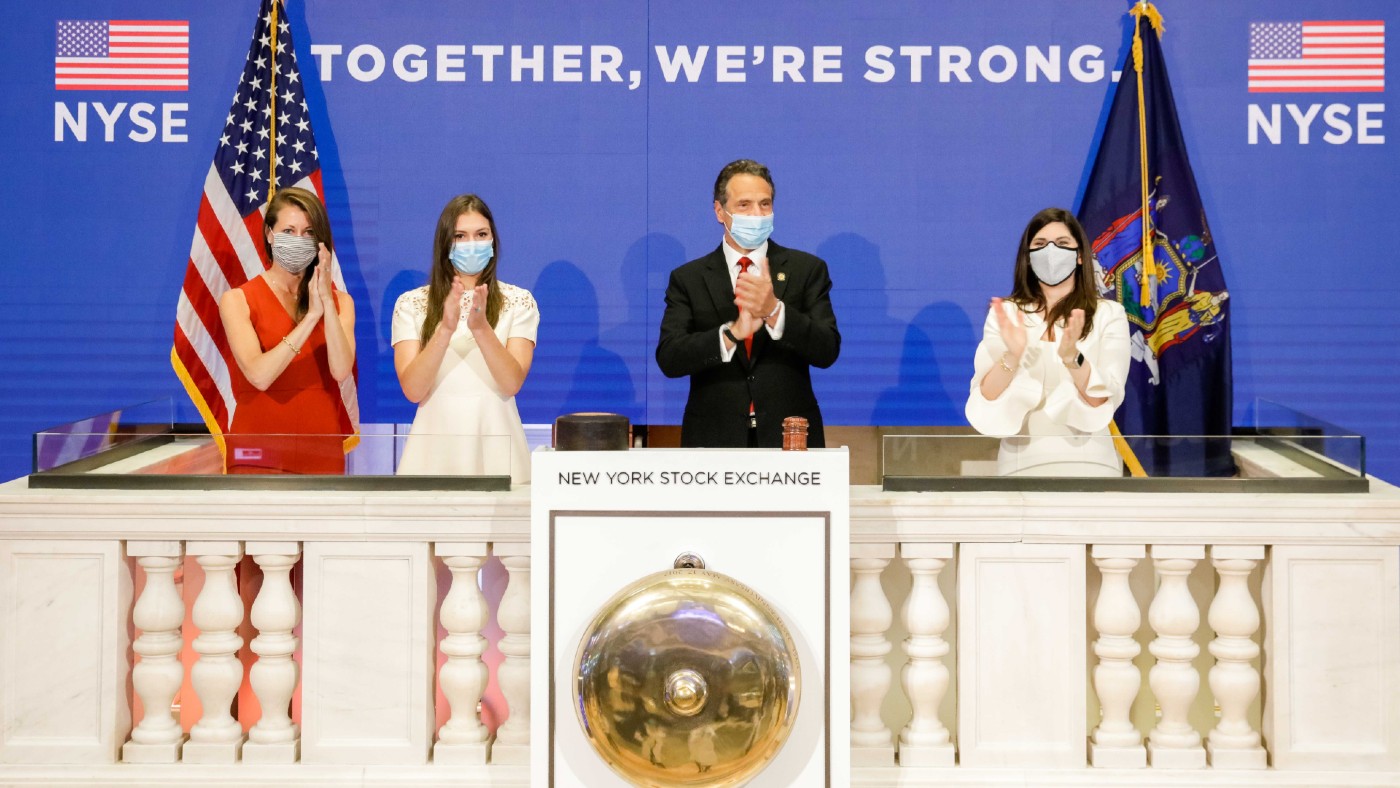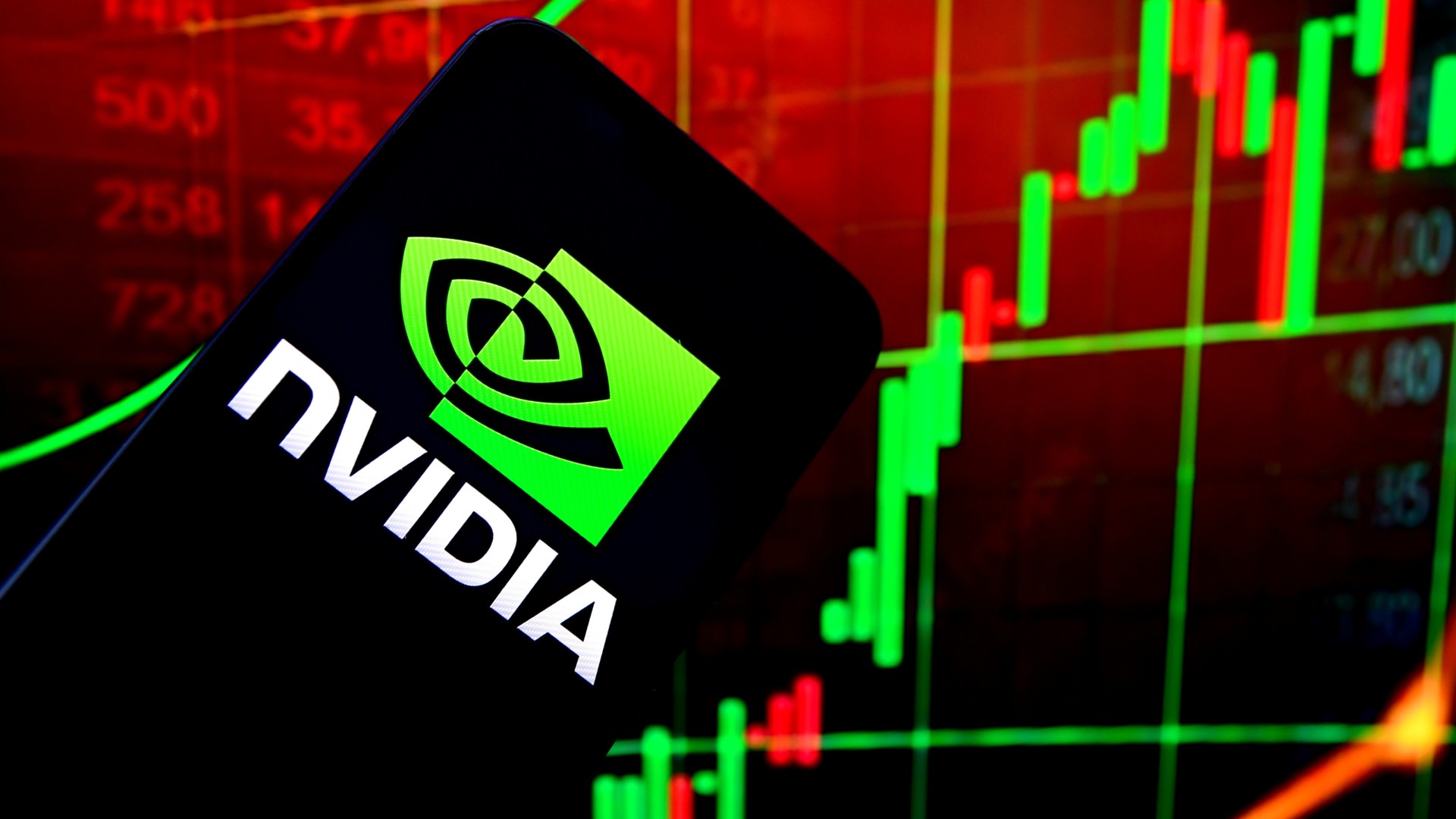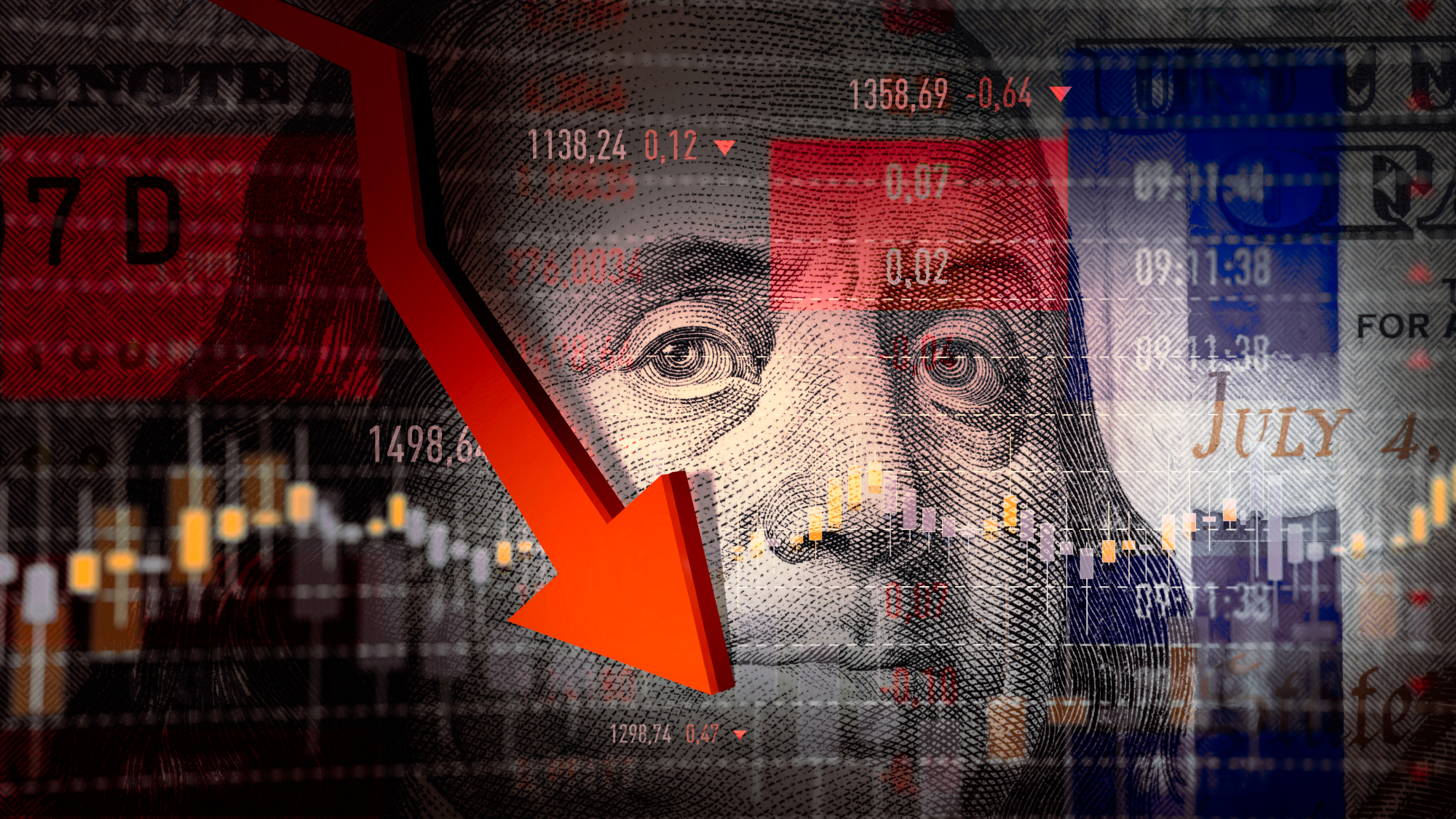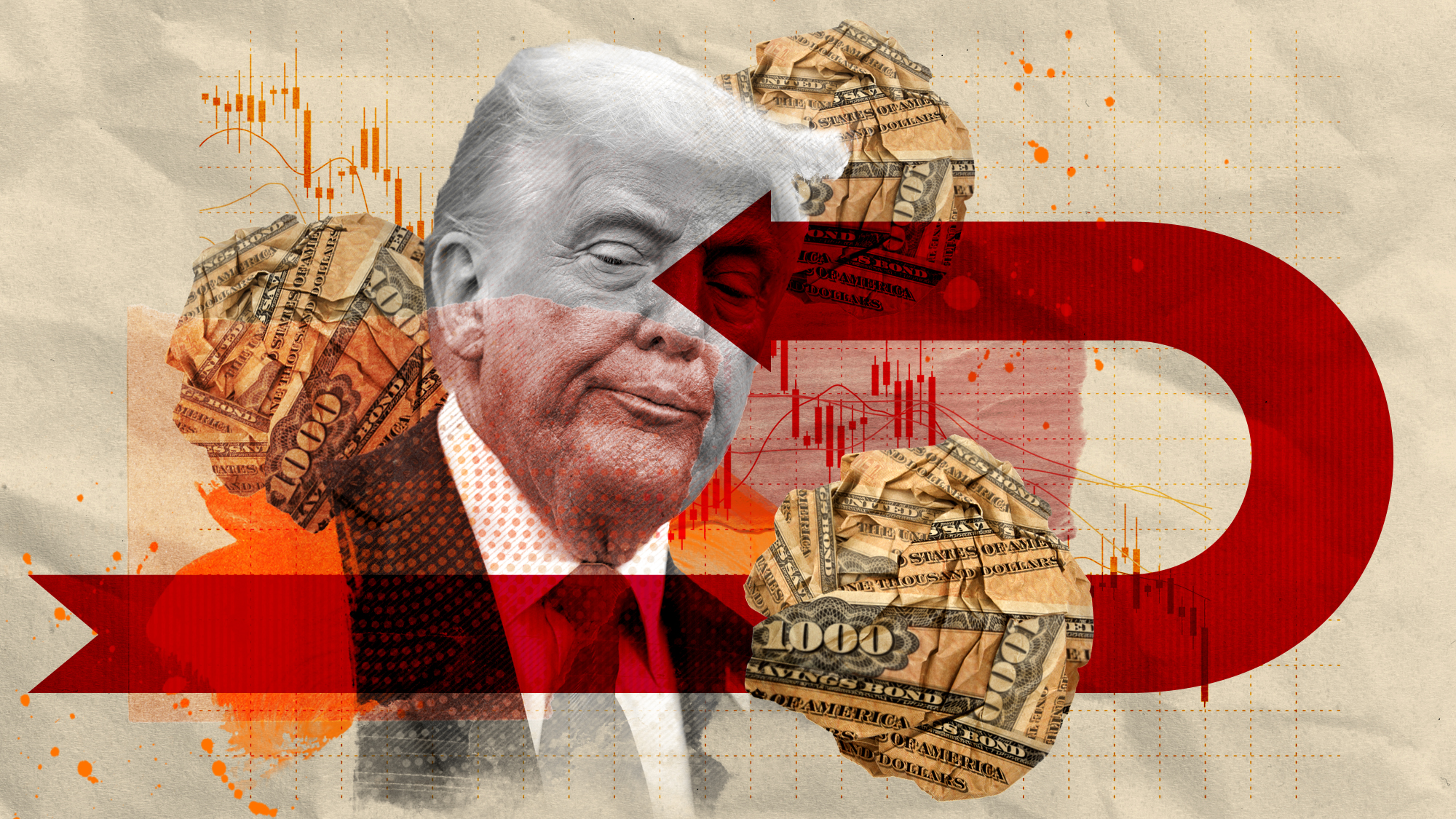Coronavirus: why are stocks markets booming in the middle of a pandemic?
Analysts offer wealth of explanations for disconnect between Wall Street and the high street

A free daily email with the biggest news stories of the day – and the best features from TheWeek.com
You are now subscribed
Your newsletter sign-up was successful
The coronavirus pandemic has triggered countless job losses worldwide, with consumer spending at a standstill and thousands of businesses set to be shuttered forever.
Yet US stock markets are near all-time highs and other world markets are recovering steadily. So what is behind the unexpected disconnect between Wall Street and the high street?
What has happened?
The Week
Escape your echo chamber. Get the facts behind the news, plus analysis from multiple perspectives.

Sign up for The Week's Free Newsletters
From our morning news briefing to a weekly Good News Newsletter, get the best of The Week delivered directly to your inbox.
From our morning news briefing to a weekly Good News Newsletter, get the best of The Week delivered directly to your inbox.
Despite the US approaching its steepest downturn since the Great Depression, the country’s stock indices are nearing all-time highs, with valuations closer to the 2000 dot-com bubble than the depths of 1929.
Indeed, “having risen a whopping 35% from a late March trough, stocks looked set to kick off June with more gains”, Reuters reports.
Why are stocks rebounding?
Economists point to a range of different drivers for investors’ confidence.
A free daily email with the biggest news stories of the day – and the best features from TheWeek.com
Diane Swonk, chief economist at Grant Thornton, believes that “many investors still see the world through pre-pandemic-tinted lenses”.
Many expect the recovery to follow similar patterns to those that came after previous recessions, ”and don’t see the much larger and longer-term challenges created by Covid-19”, Swonk writes in a Foreign Policy article that compiles various experts’ views.
Mohamed A. El-Erian, chief economic advisor at Allianz, has a different take. According to El-Erian, investors believe - falsely - that right now they simply can’t lose.
“They win if - based on the notion that stock markets can see past the short term - the economy quickly returns to normal; they also win if it doesn’t, given that the US Federal Reserve has repeatedly demonstrated that it is both willing and able to backstop markets,” he writes.
Unfortunately, this belief fails to take into account the economic and business fundamentals of each company - and many companies are going to continue to struggle, even after coronavirus lockdowns in countries across the globe are fully lifted, El-Erian says.
The New York Times, meanwhile, attributes the broad rise to “bargains and bravery”.
Or to put it another way, investors in search of good deals are buying while the market is low.
“We will never get these prices again,” said Cole Smead, a portfolio manager at the Smead Value Fund.
There is also a “fear of missing out,” the newspaper adds. “As shares rise, professional money managers feel pressure to buy stocks to protect their reputations.”
According to Business Insider, the reason stock markets are rising now is that investors think the economy has already bottomed.
“Investors think April was the low point for the economy and things could start to improve – or at least not get worse – from here,” the news site says.
–––––––––––––––––––––––––––––––For a round-up of the most important stories from around the world - and a concise, refreshing and balanced take on the week’s news agenda - try The Week magazine. Start your trial subscription today–––––––––––––––––––––––––––––––
What does a rising stock market tell us?
“No one has a crystal ball,” says David Taylor, business reporter for Australia’s ABC News. “You could argue, however, that the share market is the closest you might get to one in this world.”
The reason for this, Taylor says, is simple: “The share price of a stock represents what analysts believe the company will be worth in a few months’ or year’ time. It’s not what it’s worth based on its earnings today.”
But what a rising stock market doesn’t speak to is the health of an economy.
“Wall Street types like to believe that the price of the stocks they peddle somehow represents the value of a business or the state of the economy. Nonsense,” economics reporter Eduardo Porter writes in Foreign Policy.
“It would be a mistake to conclude that markets believe this recession will be V-shaped, with the economy ready to bounce back sharply in a few months. Markets have no clue. And it likely won’t be so rosy,” he concludes.
-
 The environmental cost of GLP-1s
The environmental cost of GLP-1sThe explainer Producing the drugs is a dirty process
-
 Greenland’s capital becomes ground zero for the country’s diplomatic straits
Greenland’s capital becomes ground zero for the country’s diplomatic straitsIN THE SPOTLIGHT A flurry of new consular activity in Nuuk shows how important Greenland has become to Europeans’ anxiety about American imperialism
-
 ‘This is something that happens all too often’
‘This is something that happens all too often’Instant Opinion Opinion, comment and editorials of the day
-
 Did markets’ ‘Sell America’ trade force Trump to TACO on Greenland?
Did markets’ ‘Sell America’ trade force Trump to TACO on Greenland?Today’s Big Question Investors navigate a suddenly uncertain global economy
-
 Texas is trying to become America’s next financial hub
Texas is trying to become America’s next financial hubIn the Spotlight The Lone Star State could soon have three major stock exchanges
-
 What a rising gold price says about the global economy
What a rising gold price says about the global economyThe Explainer Institutions, central banks and speculators drive record surge amid ‘loss of trust’ in bond markets and US dollar
-
 Is a financial market crash around the corner?
Is a financial market crash around the corner?Talking Points Observers see echoes of 1929
-
 The AI bubble and a potential stock market crash
The AI bubble and a potential stock market crashToday's Big Question Valuations of some AI start-ups are 'insane', says OpenAI CEO Sam Altman
-
 DORKs: The return of 'meme stock' mania
DORKs: The return of 'meme stock' maniaFeature Amateur investors are betting big on struggling brands in hopes of a revival
-
 Dollar faces historic slump as stocks hit new high
Dollar faces historic slump as stocks hit new highSpeed Read While stocks have recovered post-Trump tariffs, the dollar has weakened more than 10% this year
-
 How the US bond market works – and why it matters
How the US bond market works – and why it mattersThe Explainer Donald Trump was forced to U-turn on tariffs after being 'spooked' by rise in Treasury yields